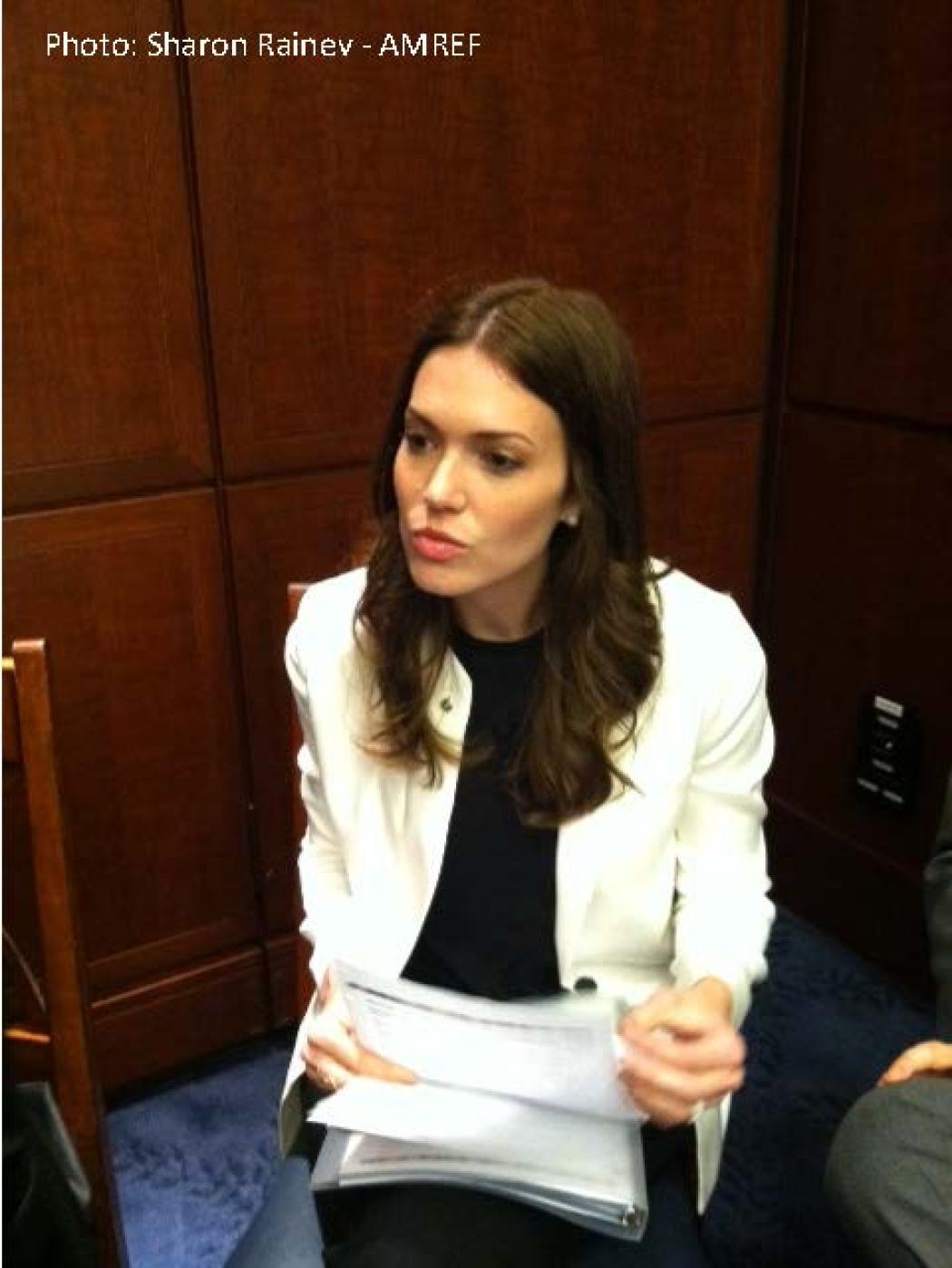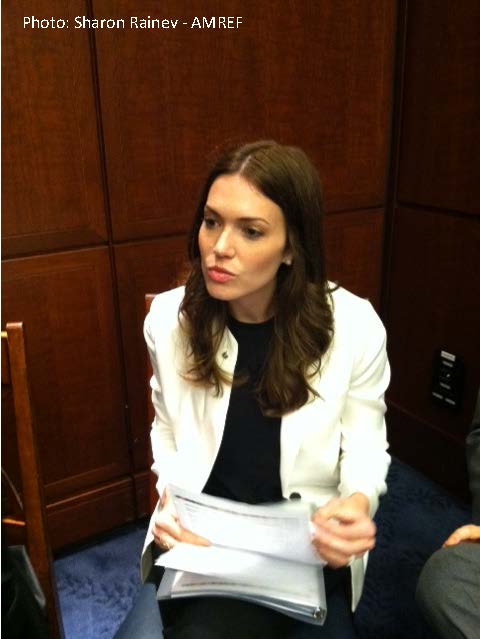Paradigm Shift Needed – 250,000 More Frontline Health Workers in Developing Countries

By Sharon Rainey, African Medical and Research Foundation (AMREF)
“When we went to Africa, it changed us completely – there is no way the Senator could ever vote for cuts to foreign aid now.” This comment from an enthusiastic young congressional staffer at the Frontline Health Worker Coalition’s briefing in Washington pretty much summed up the theme of the entire session. Every single person in that room left convinced of the undeniable importance of the frontline health worker in providing cost-effective, indispensable, community health services in developing countries.
From stories of the mobilization of 8,000 frontline workers in Haiti to assail a cholera epidemic (they were already located ‘in communities’), to Afghanistan’s tireless midwives, 70% of whom are illiterate and have found ways to communicate ante-natal and HIV prevention information to their communities through illustrations and unique knowledge training, frontline health workers have an enormous impact on improving global health.
Because they’re there, in their communities, speaking the local language and earning the trust of their neighbors every step of the way.
It was amazing to hear about Ethiopia’s successful Health Extension Worker (HEW) program from Dr Hailu Tesfaye, currently a medical practitioner with Save the Children, with extensive experience in Ethiopia’s Ministry of Health. Imagine giving Grade 10 girls in rural villages a long term career opportunity that allows them to earn a living, provide much needed health services and become well respected members of their communities.
How did Ethiopia manage to train more than 40,000 HEWs and employ these young women in 15,000+ small villages throughout the country? According to Dr Tesfaye, it took a very long time and was the result of a combination of factors: relentless internal pressure on the government from women’s and physician’s groups, never ending perseverance, a need to respond to issues of gender equality and to stimulate employment in rural areas. The program is now being replicated by neighboring countries in Kenya, Uganda and Malawi. Although still challenged, Ethiopia anticipates that this program could actually help them attain certain Millennium Development Goals in 2015 – potentially a first among African countries.
I was also impressed by the straightforward, clear thinking of Dr Joia Mukherjee, Associate Professor, Harvard Medical School and Chief Medical Officer, Partners in Health. Her main points included the need for a ‘strategic rethinking about getting close to those in need – that proximity – or being embedded in the community – is the key’. Dr Mukherjee also declared that frontline health workers are not a solution unto themselves – that they must be seen as an extension to strengthen overall health systems – a view echoed in a most comprehensive article in The Lancet http://t.co/mLiox83F about how a systemic approach to global health is required – one that includes more health workers, access, strategic leadership, an ability to leverage existing resources and a concerted global political movement for coordination among donors.
Mathew Taylor, a communications strategist from Intel, spoke eloquently about the value of public private partnerships – how they serve to advance the business opportunities of private enterprise by growing the economic potential of citizens in developing countries, as well as driving the agendas of civil society and facilitating their objectives. In Intel’s case, their work centers around bringing multi-media e-learning content to health workers to exponentially build capacity in remote areas using mobile technology. Ideally this will eventually lead to electronic health records which will also feed NGO advocacy efforts. Technology enables incentives and such partnerships can also provide the means to attract, retain, educate and compensate community health workers.
A passionate plea came from Sheena Currie, a midwife educator, for more support of Afghan midwives who with so few resources manage to reduce post partum hemorrhaging and infection, the main causes of maternal deaths globally. Having worked extensively with midwives there where even going door to door was a security hazard, Sheena found these frontline health workers to be “the most dedicated group of women I have ever worked with”.
Mandy Moore, a tireless ambassador for global health organization PSI not only lent her glow and eloquence to the gathering, but also spoke personally of her many visits to developing countries and her hope that in future visits to Africa, there will be frontline health workers in every community.
And finally, something for us all to think about. Compared to the AIDS movement of the 80s, we as civil societies have not yet galvanized public opinion behind our cause. We have not yet moved mothers in the developed countries to stand up for their sisters in the south. One of our key challenges is to get the word out – that there is hope, optimism and enormous potential in supporting developing countries in their efforts to improve health, one community at a time.
Written by: Sharon Rainey, communications strategist at the African Medical and Research Foundation’s (AMREF) New York office. AMREF is a member of the Frontline Health Workers Coalition, a dynamic and influential coalition of 25+ NGOs working together to urge greater and more strategic U.S. investment in frontline health workers in the developing world as the most cost-effective way to save lives and foster a healthier, safer and more prosperous world.
Visit AMREF's website here for more information.

